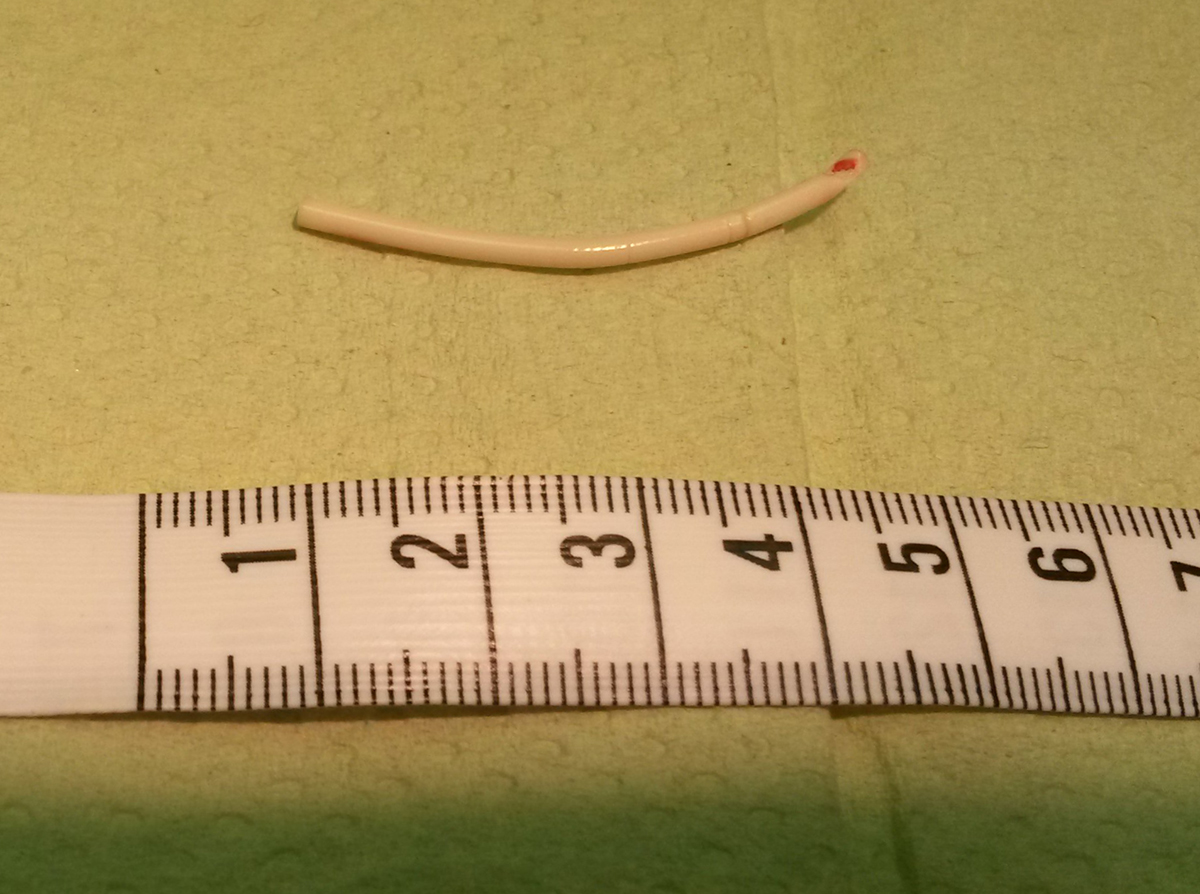Table of Contents
Are you looking for a long-term but not permanent contraceptive? Intrauterine devices (Paragard and Mirena), birth control injections (depo Provera) and the contraceptive implant are all options you may want to consider. In this article, we'll examine how the "birth control stick" works, and whether it may be for you.

What Is Nexplanon?
Birth control implants are small devices made from flexible plastic. Inserted in the user's upper arm, they are about the size of a matchstick and work to prevent pregnancy for up to three years. Two similar devices exist: Implanon and Nexplanon. The mechanism of action is the same for these two devices, however Nexplanon is the newer version. Unlike Implanon, Nexplanon has been designed so it can be detected by X-rays. The insertion process is also slightly easier for Nexplanon, which eliminates the risk of it being placed too deeply under the skin. Nexplanon is currently the only FDA-approved birth control implant, however Implanon may still be used in countries other than the US.
Progestin-only birth control methods prevent pregnancy by:
- Preventing ovulation.
- Thickening cervical mucus, making your reproductive system an "impenetrable fortress": even if you would ovulate, sperm would get nowhere near that egg.
- Interfering with the quality of your uterine lining, making implantation of a fertilized egg near impossible (not that you'll get to that stage!).
Birth control implants are very effective: less than one in 1,000 women who use them will experience failure, meaning pregnancy despite the use of this contraceptive. Once a practitioner establishes that the rod is definitely in place (easier with Nexplanon than Implanon), the user can basically forget about the contraceptive and enjoy a worry-free intimate life. Unlike pill users, women with contraceptive implants do not have to remember to use their birth control every day: once it's there, you're good to go.
Could Nexplanon Be The Right Contraceptive For You?
Nexplanon may be the right contraceptive for you if you are looking for a long-term contraceptive that you don't have to remember to take every day. It's great for STD-free women who are in long-term committed relationships and want to prevent pregnancy but don't need to worry about sexually transmitted diseases. Nexplanon has the "side effect" of making periods less painful for many women. This makes it a good choice for women who experience painful periods.
Nexplanon may not be right for you if you are using medication. Some medications make the birth control implant less effective, and these include certain TB, HIV, and anti-seizure medications. St Johns wort, a natural antidepressant, also interacts with Implanon in a way that makes it less effective. Make sure your practitioner is aware of all the medications you use, including herbal or alternative remedies, before you get the implant.
Women with a history of breast cancer, those who think they could be pregnant, those suffering from unexplained vaginal bleeding, women with liver disease, and newly postpartum breastfeeding mothers should not get Nexplanon either. It goes without saying that the birth control implant isn't suitable for those who are allergic to its active ingredient, etonogestrel, should not use this contraceptive. Women with diabetes or poorly controlled high blood pressure should use Nexplanon with caution.
See Also: Intrauterine Devices: A Contraceptive Option More Women Should Consider
Nexplanon may not be for you if you plan to get pregnant quite soon either (even though the removal process is very straightforward), and those who may come into contact with sexually transmitted diseases may use Nexplanon, but should also use condoms.
- By Vera de Kok (Own work) [CC BY-SA 4.0 (http://creativecommons.org/licenses/by-sa/4.0)], via Wikimedia Commons
- By Vera de Kok (Own work) [CC BY-SA 4.0 (http://creativecommons.org/licenses/by-sa/4.0)], via Wikimedia Commons


Your thoughts on this